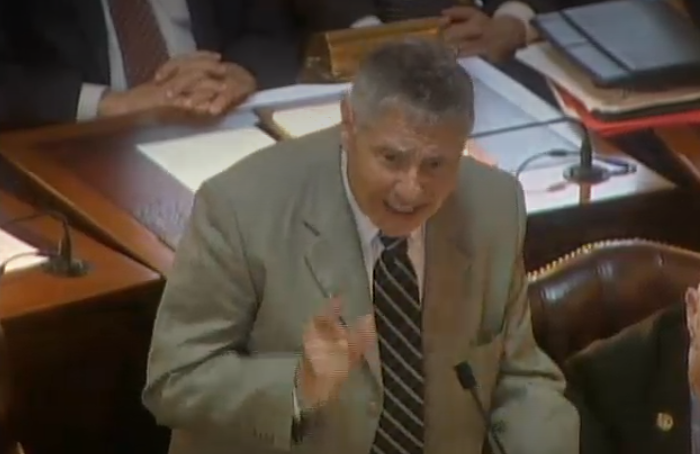
The term Election Day is something of a misnomer at this point. More than half a million votes in New Jersey have already been submitted through the mail or drop boxes, and early in-person voting begins in the Garden State on October 26, 2024. And it is not just New Jersey that is embracing early voting—more than one million early votes have been cast in the swing state of North Carolina.
This increased emphasis on early voting certainly has important implications for political strategy and GOTV efforts, but it also raises a question under campaign-finance laws. In many states, the period immediately before Election Day features special pre-election reports, often filed within 24-, 48-, or 72-hours of when a specified transaction takes place. The stated goal of this pre-election reporting is to ensure disclosure to the public, before Election Day, of significant political transactions that would otherwise not be reported until candidates have already been elected.
Do pre-election reports still accomplish this goal when millions of votes are cast before any pre-election reports are filed? Should the timing, scope, and frequency of pre-election reporting be adjusted to match the reality early-voting in significant numbers?
Those are questions for legislators and election authorities to consider.
For now, candidates, parties, PACs, and Super PACs must play the compliance hand that they are dealt, and file timely reports before Election Day. A selection of pre-election-reporting reminders follows for PACs in certain jurisdictions, but keep in mind that specific requirements will depend on specific facts:
New Jersey PACs
- Activity between October 1 – October 22 – report on one cumulative pre-election report due October 25;
- Activity between October 23 – October 28 – report due within 72 hours of the transaction; and
- Activity between October 9 – November 5 – report due within 24 hours of the transaction.
Activity subject to pre-election reporting are those transactions that exceed $200 as:
1) contributions received, and
2) political expenditures made.
But operating expenditures do not need to be included.
Pre-election activity is always reported twice—once before the election, and then again on the next regular quarterly report.
New York PACs
Starting October 22, 2024 through November 4, 2024, all contributions or loans received which exceed $1,000 must be reported within 24 hours. There are also heightened disclosure obligations for independent expenditures made before Election Day.
Pennsylvania PACs
Starting from the close of the previous report, when a Pennsylvania political organization receives a contribution or pledge of $500 or more, or when any person makes an independent expenditure of $500 or more, such activity must be reported within 24 hours. For 2024, this period began October 22, 2024 and continues through November 5, 2024.
Federal Super PACs
At any time during the year (except for the period 19 days before an election and through the day before Election Day) any independent expenditure with a value of $10,000 for a particular election must be reported within 48 hours.
Then, starting on the 19th day before the election and through the day preceding Election Day, any independent expenditure with an aggregate value of $1,000 for a particular election must be reported within 24 hours.
Compliance Tip: Because the purpose of pre-election reporting is to ensure disclosure before voters head to the polls, there are often heightened penalties for failure to file pre-election reports, and an inability to cure errors or omissions. These dates must be calendared and there must be open lines of communication with compliance staff during this crucial pre-election period.
Avi D. Kelin is a founding partner of PEM Law LLP, and chairs the firm’s Political Law and Non-Profit Law practices. He helps businesses, organizations, individuals, and political organizations to influence policy while complying with the law.
This column is for educational and informational purposes only and is not intended and should not be construed as legal advice. It is recommended that readers not rely on this column, but that professional advice be sought for individual matters.
(Visited 25 times, 25 visits today)
In the world of politics and government, transparency and accountability are crucial for maintaining the trust of the public. One important tool that helps ensure transparency in the electoral process is the pre-election report.
A pre-election report is a document that provides information on the financial activities of a political campaign or party leading up to an election. It is typically required by law and must be submitted to the appropriate regulatory body before the election takes place. The purpose of the report is to give voters and regulators insight into how campaign funds are being raised and spent, and to ensure that all financial activities are conducted in compliance with relevant laws and regulations.
The importance of the pre-election report cannot be overstated. By requiring campaigns to disclose their financial activities, it helps prevent corruption, fraud, and other unethical practices that could undermine the integrity of the electoral process. It also allows voters to make informed decisions about which candidates to support, based on how they are financing their campaigns.
In addition, the pre-election report helps regulators monitor campaign finance activities and enforce compliance with relevant laws. By providing a clear record of a campaign’s financial transactions, regulators can quickly identify any discrepancies or violations and take appropriate action to address them.
Overall, the pre-election report plays a vital role in promoting transparency, accountability, and integrity in the electoral process. It helps ensure that political campaigns are conducted in a fair and ethical manner, and that voters have access to important information about how their candidates are funding their campaigns. By understanding the importance of the pre-election report in compliance, we can all work together to uphold the principles of democracy and ensure that our elections are free and fair.



